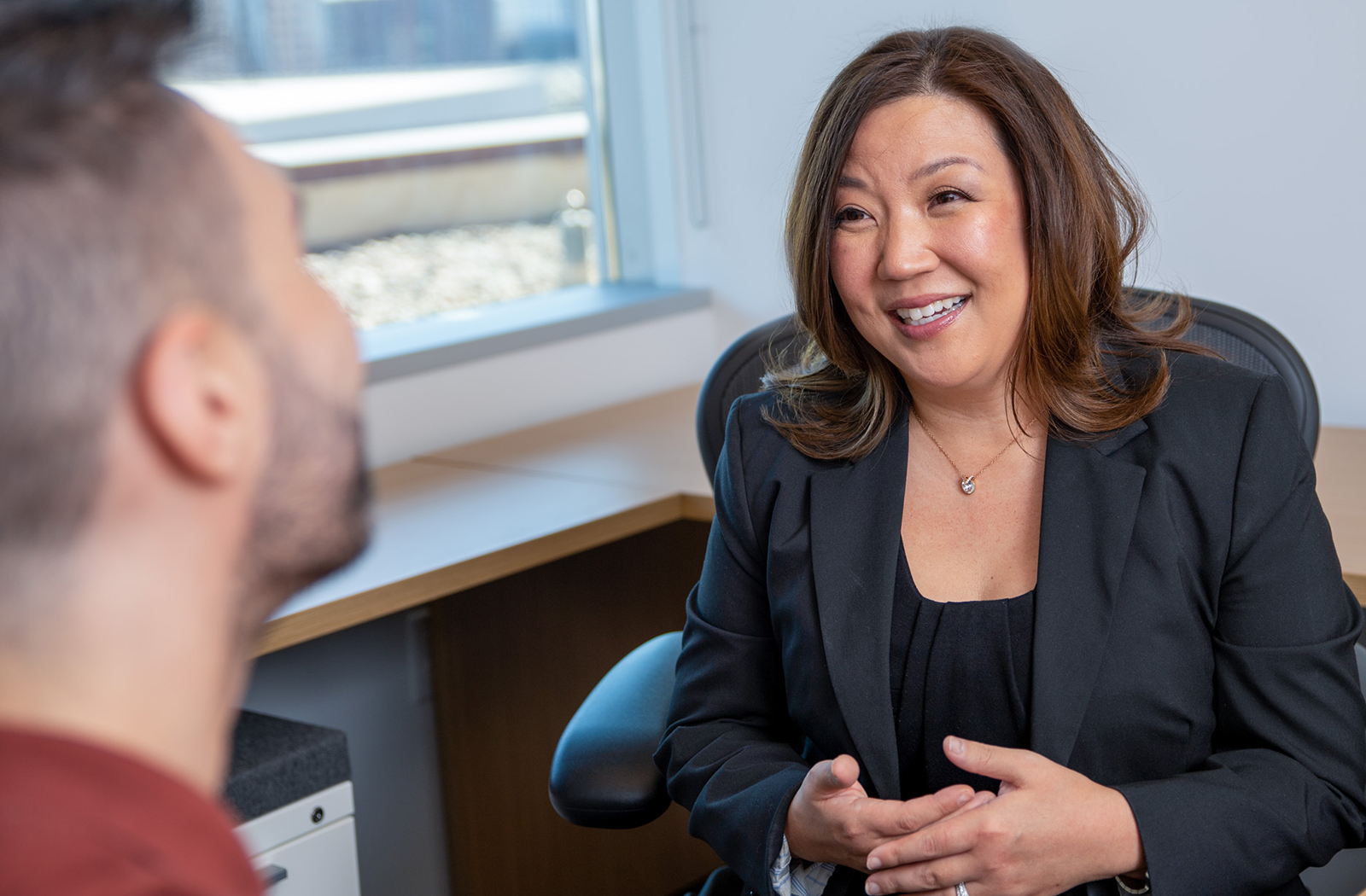
Exploring the Intersection of Sleep Medicine and COVID Recovery

Joyce Lee-Iannotti, MD — an associate clinical professor in the Division of Pulmonary, Critical Care and Sleep Medicine and in the Department of Neurology, director of the Sleep Disorders Center at Banner – University Medical Center Phoenix, as well as the program director for the Sleep Medicine Fellowship at the University of Arizona College of Medicine – Phoenix — has been a trailblazer in unravelling the intricate relationship between COVID recovery and neurologic dysfunction, including sleep disorders. Dr. Lee-Iannotti provides new insights into her COVID recovery and sleep disorders research, with a particular focus on long-haul symptoms.
"After people get acute COVID, up to 30 to 40% are at risk of developing long-haul symptoms lasting for three plus years," she said. Notably, those who experienced severe COVID during hospitalization or had pre-existing conditions such as hypertension, diabetes, coronary artery disease, or sleep apnea face a higher risk of long-haul symptoms.
"Women are at higher risk for long-haul symptoms, possibly hormonally related. There are a lot of theories about this, but that was surprising as far as the initial data collection," Dr. Lee-Iannotti highlights. She examined various risk factors and gender differences in patients experiencing long-haul symptoms.
Dr. Lee-Iannotti and the working group associated with her study seek to address the emerging challenges posed by new variants of COVID. “They are looking at vaccinations, not only vaccinations against which variant, but which variant has a higher risk of long haul COVID symptoms. And I think preliminarily they're showing that it was the delta less so than the omicron variant that posed a greater risk. The area is just so new that we don't have any data related to that. But there seems to be a correlation to which variant leads to more long-haul symptoms, and it seems like delta was the culprit,” she shared.
A pivotal aspect of Dr. Lee-Iannotti's work builds upon the Researching COVID to Enhance Recovery (RECOVER) study, a National Institutes of Health (NIH) research initiative designed to understand and prevent long COVID. She asserts, "If your sleep is not good or dysfunctional, everything is horrible." Recover Sleep, a clinical trial funded by the NIH, outlines interventions for hypersomnia and insomnia using medications and light therapy. Other NIH-funded trials, RECOVER VITAL and RECOVER NEURO, target long-haul symptoms, including cognitive dysfunction, dysautonomia and exercise intolerance post-COVID.
Although progress in the treatment of sleep disorders related to long COVID recovery continues to be made, there is no cure. Dr. Lee-Iannotti will persist in researching innovative therapies and advancing the knowledge to better serve patients.
As a recognized researcher and role model, Dr. Lee-Iannotti wants to inspire clinicians to further their exploration. She advises, "Find the right mentor who will show you the ropes, even if you’re in your mid-career. It can be completely life-changing for you and your patients."
About the College
Founded in 2007, the University of Arizona College of Medicine – Phoenix inspires and trains exemplary physicians, scientists and leaders to advance its core missions in education, research, clinical care and service to communities across Arizona. The college’s strength lies in our collaborations and partnerships with clinical affiliates, community organizations and industry sponsors. With our primary affiliate, Banner Health, we are recognized as the premier academic medical center in Phoenix. As an anchor institution of the Phoenix Bioscience Core, the college is home to signature research programs in neurosciences, cardiopulmonary diseases, immunology, informatics and metabolism. These focus areas uniquely position us to drive biomedical research and bolster economic development in the region.
As an urban institution with strong roots in rural and tribal health, the college has graduated more than 1,000 physicians and matriculates 130 students each year. Greater than 60% of matriculating students are from Arizona and many continue training at our GME sponsored residency programs, ultimately pursuing local academic and community-based opportunities. While our traditional four-year program continues to thrive, we will launch our recently approved accelerated three-year medical student curriculum with exclusive focus on primary care. This program is designed to further enhance workforce retention needs across Arizona.
The college has embarked on our strategic plan for 2025 to 2030. Learn more.